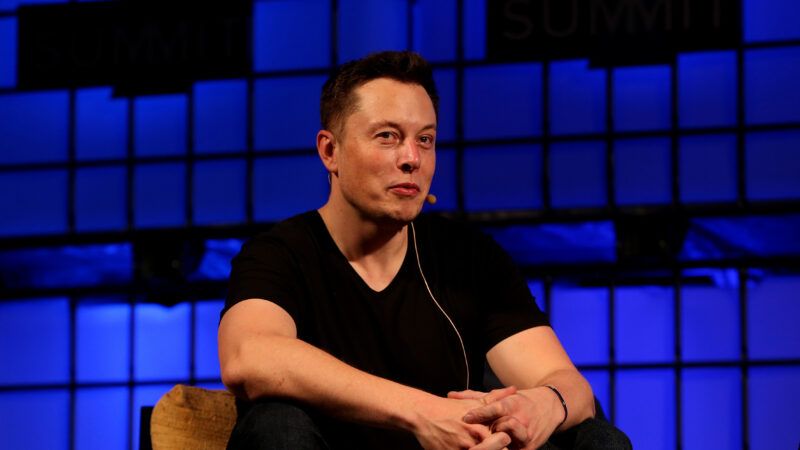Elon Musk Buying Twitter Is Not the End of the World
Regular people are not so terminally online.

Elon Musk has once again offered to buy Twitter—at his original price of $44 billion. Given that the social media company is currently suing the world's wealthiest man in order to force him to purchase the company, it seems likely that Twitter might accept this proposal.
For some mainstream media reporters on the so-named disinformation beat, this prospect is abjectly terrifying. Ben Collins, a reporter for NBC News, encapsulates the consensus nicely:
For those of you asking: Yes, I do think this site can and will change pretty dramatically if Musk gets full control over it.
No, there is no immediate replacement.
If it gets done early enough, based on the people he's aligned with, yes, it could actually affect midterms.
— Ben Collins (@oneunderscore__) October 4, 2022
Collins' fear is quite representative of what many media figures think about this prospective takeover of Twitter. Axios described Musk's behavior as akin to a supervillain, while Jeff Jarvis, a City University of New York journalism professor, lamented that he was witnessing the rise of Nazi Germany.
What scares them so much about Musk is simply that he has criticized Twitter's past efforts to moderate content, which in his view too frequently resulted in the muzzling of legitimate political speech. The most infamous example, of course, was Twitter's treatment of the New York Post's Hunter Biden story, which even Twitter's former CEO, Jack Dorsey, has admitted was a mistake.
But mainstream media figures tend to think social media needs more guardrails, not fewer. They have broadly adopted the framing that Twitter and Facebook are rife with misinformation, that it is the media's job to identify the misinformation, and that it is the platforms' job to eliminate it.
Such sweeping condemnations from the mainstream media often elide the fact that information is wrongly labeled misinformation with some frequency and that misinformation czars (both self-appointed and government-appointed) tend to get things wrong.
Indeed, Collins' assertion that Musk could acquire Twitter, vastly reorient it, and cause Republicans to win the midterms in a few short weeks, is telling. Some reporters on this beat are becoming serially guilty of overstating the importance of Twitter to general life. People get their news in all sorts of ways, from all sorts of sources. What happens on the blue bird site matters a great deal to Washington, D.C., policy makers and their media foes. Regular people are not so terminally online.
It remains to be seen what new policies Musk would implement if he takes over the site. He will likely find that content moderation at scale is much harder and more complicated than he thinks. But trying to make the site a bit more fair to alternative and contrarian political perspectives is not a project that should be greeted with apocalyptic denunciation.

Show Comments (93)